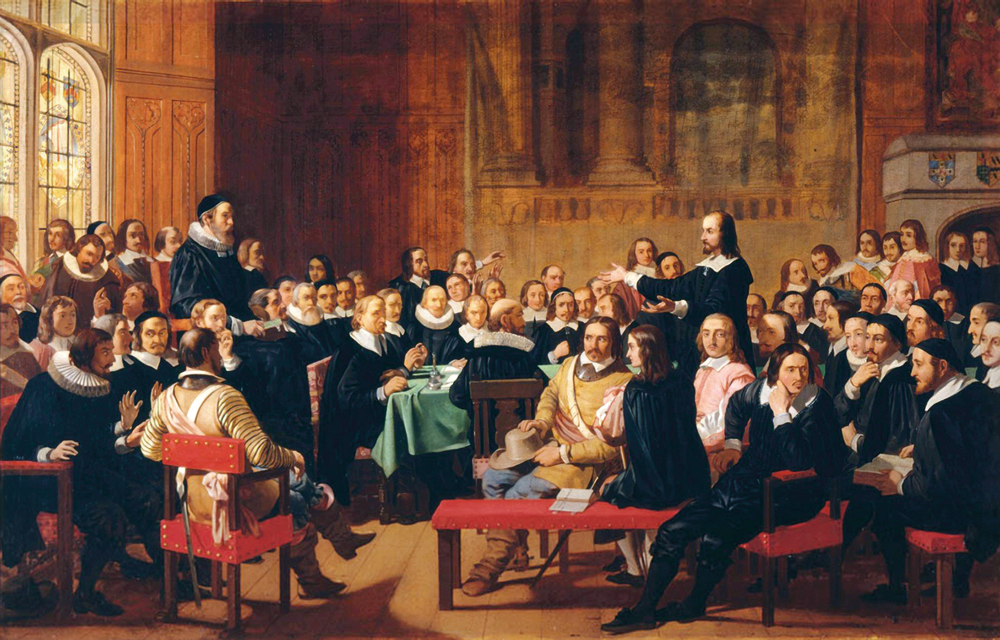
- In 1642 the Parliament of England banned Christmas by an ordinance, by the impulse of the Puritans, which "gave freedom to lust and to sensual excesses".

Born December 19, 1642. The Parliament of England adopted an ordinance recommending to citizens: “That they may act with the strongest humility at Christmas, remembering our sins and those of our ancestors, with the excuse of Christ’s memory, because at these holidays they had completely forgotten God and gave freedom to lust and to sensual excesses.”
King Charles I was not in favour of these measures, but in parliament the Puritans dominated. In addition, that same year, a number of theologians met for the first time at the Westminster Board to determine the course of the Anglican Church, founded in 1534. Here too, the Puritans were predominant, who rejected the excesses of Catholicism and fostered unshakedly asceticism.
The following year, in 1643, not only was the ordinance ratified, but it hardened: Christmas, the celebration of Pentecost and Easter were prohibited by law. This ban would last until 1660, when Carlos I.aren, his son Karlos II.ak, was made with the crown. Moreover, the prohibition was not limited to the Kingdom of England: In 1657, on the other side of the Atlantic, the Puritans of Massachusetts also managed to ban Christmas, imposing a fine of five schillings to those who were entitled to celebrate the feast.
In England, the measure caused disturbances. The toughest were produced in 1647 in London, Ipswich, Norwich and, above all, in Canterbury. Many citizens celebrated Christmas Day publicly and attacked the shops that opened their doors on 25 December. Immersed in a civil war between the supporters of the king of England and the parliamentary forces chaired by Oliver Cromwell, “Saving Christmas” became a political weapon, an instrument that gave many followers and a strong impulse to the cause of Carlos I.aren, at least in the early years.
The clashes ended in 1649, when the monarchists were defeated and Carlos I, killed on January 30. In the next decade, they would not celebrate Christmas, at least in public.